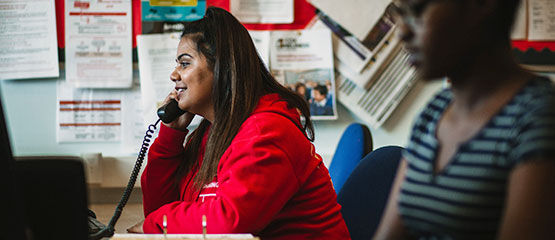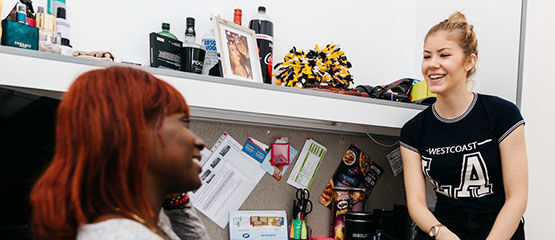For World Meditation Day 2021, we spoke with Aldo Mussi, lecturer for our MSc in Public Health, as well as part-time yoga instructor for colleagues at BCU. He tells us all of the benefits of simple meditation, as well as a few tips and tricks to get you started on your meditation journey.
"“Don’t just do something – sit there!” is a common jokey catchphrase in the world of meditation. In our busy world, it can seem impossible to find time for self-care and stillness – but as people are increasingly realising, it’s not only good for our wellbeing, but also helps our productivity (by building focus, calm and energy) - & even the police use it with staff (Booth, 2019).
The good news is, you don’t have to be a Buddhist monk to practice meditation (although it’s pretty cool if you are!), and it’s not a religion. Meditation is simply “The active process of encouraging stillness in the mind”, and just a few minutes a day will help you in dealing with life’s challenges, and developing clarity about yourself. Medically, the evidence base is building for how it helps to reduce stress and anxiety, in turn protecting the body – and even building useful new connections in the brain. There are accounts of it resolving chronic pain, such as for Tim Parks:
“Just when the medical profession had given up on me and I on it, just when I seemed to be walled up in a life sentence of chronic pain, someone proposed a bizarre way out: Sit still, they said, and breathe…”
A modern, popular spinoff of meditation is mindfulness:
“Mindfulness involves paying attention to our experience in the present moment, with curiosity, compassion and acceptance. It is a blend of modern psychology and the ancient wisdom of meditation, which helps us to live life more fully and with a greater sense of perspective” (OMC, 2021).
As a yoga teacher, I help people work on yoga postures, which in turn helps to prepare the body to be comfortable during breathing and meditation activity – being ‘fit to sit’ as some people put it. But you can start on your own, guided by the sources in this article, or many others online.
Aldo’s tips for meditation
- ‘Little and often’ is a good way to start. It’s great if you can find a slot in the day that will work for you, e.g first thing on waking, or last thing before sleep.
- If the discipline or guidance of a class suits you, there are plenty (e.g in person on online from the Birmingham Buddhist Centre).
- The classical sitting postures in yoga enable the meditator to be still for longer periods without discomfort – but you can also meditate while sitting in a chair.
- As well as this, mindfulness & meditation can be built into everyday activities, such as walking and eating.
- Don’t beat yourself up if your mind wanders, as this is quite normal. Try to refocus, and know that this improves with practice.
- Try using the guided practices from the ‘Headspace’ app and website, taking advantage of BCU’s subscription (www.headspace.com).
- There is also plenty of material in magazines such as www.mindful.org/magazine
- Some people find it useful to keep a meditation diary, to reflect on their learning.
Whatever you try meditation-wise, I hope you enjoy it!


